Humans are wired to be with others we trust. In fact, the more we can depend on those around us to have our backs and meet our needs, the more independent and capable we become. It’s known as the dependency paradox.
Yet, many organizations’ practices, mindsets, and cultural norms are premised on the epitome of a strong leader who doesn’t need others to be effective; one who doesn’t need close relationships for high performance to happen. There is growing interest and commitment to unlearning aspects of the heroic leader in favor of new kind of leadership model—interdependent leadership.
The evidence for interdependent leadership is staggering—recent findings by Jim Coan (Social Baseline Theory), Paul Zac (Trust Factor), and even U.S. Surgeon General Dr. Vivek Murthy (Together) have demonstrated the notion that humans thrive in environments where we feel connected to the people around us in a way that allows to belong as our authentic selves. It sounds so obvious for some, and for others it can sound way too unrealistic for the workplace.
Pause for a moment and reflect…
- Do you trust the people you work closely with? Do you believe they have your best interests at heart? If something went wrong, would they have your back?
- Do you feel safe to be yourself at work around these people? Would they accept every part of you if you let it out at work?
- Seriously! Could you sing a song at your next meeting? Wear your favorite flip-flops? Dance like no one is watching? Share your most personal beliefs? Speak openly about your concerns or struggles?
If you’re feeling positive about the answers to these questions, you’re probably able to function at higher levels of performance and achieve more of your potential than those that answer them more negatively.
Yet when the opposite is true—when we don’t trust the people we work with, and when we don’t feel like leadership has our best interest at heart—humans literally perceive everything as more difficult and expend more energy doing the same tasks. Prolonged and acute experiences in untrusting or unaccepting environments become toxic to our nervous systems and lead to unhealthy coping strategies that, in turn, lead to unhealthy people and organizational cultures.
This article will help you reflect on ways to become more congruent with the way we are wired—as interdependent, bonded beings.
Learning to load share
When humans know they can depend on the person next to them, their brain changes how it allocates resources (glucose) because it assumes that it doesn’t have to work as hard to do the same task. Leading social neurobiologist Jim Coan calls this interdependent phenomenon “load sharing.” His studies show that higher quality relationships increase the amount of load sharing that occurs—plus, stressful situations are experienced differently when alone than when holding the hand of a trusted other.
Feeling alone in challenging or threatening situations seems to be a worst-case scenario for human thriving. (Prolonged experiences of isolation, whether real or imagined, are traumatic to people and can lead to other negative coping strategies). Hard things happen, but a universal human truth is that we need trusting relationships to be the most effective, resilient versions of ourselves. This is huge for leaders to internalize and unlearn old patterns, mindsets, and behaviors. Interdependent leaders learn that sharing and responding to needs is an essential part of growth and trust—even if our past experiences told us otherwise.
Here are a few reflection questions to help you with the unlearning journey—they don’t offer advice, they offer perspective. These are simply questions to help you explore your relationship with needing trusting relationships at work and key aspects of load sharing. Use them as a mirror to gauge where you are on your journey toward interdependent leadership. To dig deeper into these questions, download the reflection guide.
- How important are close relationships to you at work?
- How likely is the truth to come out?
- What’s it like to be on the other side of you?
- How comfortable are you with needs—both yours and other people’s?
- What might you be holding back to keep others from experiencing the “real” you?
Creating environments conducive to load sharing
A challenge with adopting interdependent leadership today is that cultural norms and organizational designs can make close relationships and high-trust environments feel like you’re swimming upstream. Here are a few thoughts for leaders to consider as you embrace interdependent leadership:
Consider your incentives—Business is a team sport.
Often organizations lean on extrinsic motivators like bonuses or recognition based on individual achievement. Depending on the incentive structure, this can damage a culture of load sharing because it puts individuals and teams in competition with each other instead of encouraging leaning on each other for support. Be intentional with how and why you choose to implement individual incentives; when you do use them, focus on ways to recognize teams and collaboration.
Consider being more transparent—Default to open.
Google has a principle that drives much of their operational model—“Default to open.” While the truth can hurt or take more training to support, it’s one of the most empowering things you can do for a team. When people learn that it’s okay to share as openly as safely possible, it fosters a trusting environment that is more conducive to sharing needs and concerns.
Consider your team design—It takes a village.
One of the reasons leaders today feel load-sharing is unsustainable and maybe even unfair is that hierarchical structures make it incredibly difficult or impossible to do without negatively impacting the leader trying to support their people well.
The most resilient organizational models embrace multiple bonds to support the needs of its people. A recent article by Corporate Rebels outlines variety of progressive models that are trying to increase load-sharing in the way they organize. One thing every new model has in common is that they’re moving away from structures that allow leaders to have large numbers of direct reports. They are also moving toward multiple partnership (responsibility with) relationships and away from direct (responsibility for) relationships.
At TiER1, we are a role-based organization that organizes in agile teams with multiple alignments throughout the organization to increase the number of leaders any TiER1er can load share with. It’s a more complex model than traditional hierarchy, but it’s designed to promote agility and resilience across the organization.
Consider past experiences—Unlearning is hard.
Interdependent leadership goes against the grain of most leaders’ experiences in the workplace. Many have not experienced what interdependent leadership looks or feels like, and the “higher up” we go, the less we’re expected to be interdependent. High-performing leaders are balancing expectations to deliver results regardless of what’s going on (that’s why we’ve been entrusted this leadership position) with the personal toll it can take on our health (physical and mental). Managing that balancing act can lead to destructive coping strategies that harm the leader as well as their family members, close friends, or colleagues.
If you’ve only seen this way modeled, it’s hard to imagine a different way to be—and you may even be incentivized or directed to not take the time or energy to do it. Try opening up to your team when you feel torn or stuck and acknowledge that you’re looking for a more human way—and invite them into the problem space with you.
A final thought—followers are calling leaders up.
A recent study on 3,400 people across 10 countries found that leaders have just as much of an impact on people’s mental health as their spouse (both 69%)—and even more of an impact than their doctor (51%) or therapist (41%). This is a huge finding and call for leaders to embrace their significant role in creating environments where people can thrive at life, not just work. To be compared to a spouse speaks to followers’ expectations and hopes for the kind of leader they have. Load sharing isn’t just about having more connections, it’s about creating a caring environment where strong bonds make difficult and meaningful work more sustainable.
Unlearning independent leadership will be hard for many, but a worthy endeavor to create a more resilient, healthy, and high-performing workforce. Becoming an interdependent leader will pay dividends on the personal and professional lives of everyone you lead, including you and your family.
Reflection Questions
Download the reflection guide to dig deeper into these questions on your own.
- How important are close relationships to you at work? Do you expect the same amount of closeness from your leaders (or board) as you offer the people you lead? Where did you learn to feel this way about relationships at work?
- How likely is the truth to come out? Do people feel safe speaking their truth in front of you? Do you feel safe speaking your truth to your leaders? How likely are you to pick up the phone and call or text the people you work with? What do these things tell you about your relationships?
- What’s it like to be on the other side of you? Do your people trust your intentions and where you stand with them? What signals do you send people (intentionally and unintentionally) about their worth? Are you trustworthy? Are you conscious of the effect you have on others?
- How comfortable are you with needs—yours and theirs? Do you feel ‘needy’ expressing a challenge to others? How do you respond when people come to you with issues? How tolerant are you of emotions when they get the best of people? How open are you to others’ cultural, gender, and generational perspectives and needs?
- What are you holding back—are we experiencing the ‘real’ you? What parts of you do you withhold from your colleagues or your place of business? What would it take for you to feel safe enough to bring some of these parts to work with you? What do you think but not say? How can you make your feelings about others (especially the good ones) more clear and explicit?
About the Authors
Ankit Shah has over a decade of experience in DE&I and talent management within higher education, healthcare, and K-12 settings. He’s had the privilege of assisting underserved as well as underrepresented populations in his entire professional journey. In his current role as Supervisor, Talent Development at Columbus State Community College, Ankit supports multigenerational professionals with their diverse talent management needs at the college.
Dustin Shell is Director of Organizational Development at TiER1. Dustin is passionate about empowering people and organizations to thrive. Drawing upon his experiences in counseling, music, technology, experience design, innovation design, and starting a thriving business, Dustin is an advocate for building trust within teams and re-inventing organizational structures to support individual creativity and team agility.




